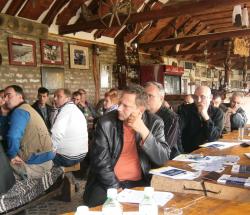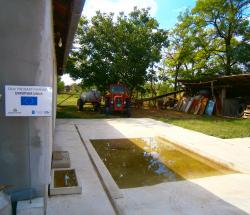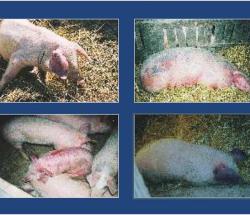| Brief description | Prevention of classical swine fever (CSF) spreading in the cross-border region through improvements to sanitary standards and education of farmers. |
|---|---|
| Region | Intra Western Balkan borders |
| Countries | Croatia (HR) – Serbia (SRB) |
| Location | HR: Osijek-Baranja County; Municipalities of Erdut, Bilje, Draž, Popovac, Čeminac, Magadenovac and Semeljci SRB: Južnobački and Sremski District; City of Novi Sad; Municipalities of Bač, Bačka Palanka, Šid, Ruma, Sremska Mitrovica |
| Type of project partners | Regional government units Public bodies/institutions |
| Size (total budget including EU grants) | € 200,000 to € 500,000 |
| Main themes | Agriculture and rural development |
| Keywords (Types of Activities) | Study visits, exchanges and networking Education and training Conferences/major events Construction, repairs, cleaning up Other |
| Keywords (Aspects of Good Practice) | Genuine cross-border dimension Genuine cross-border impact Innovative Good sustainability |




